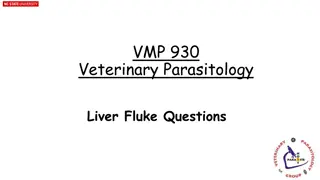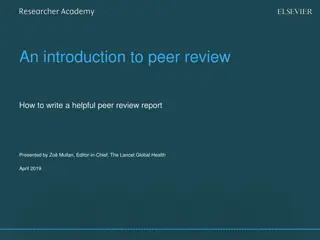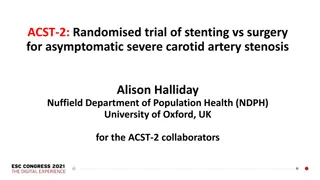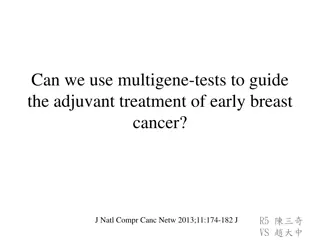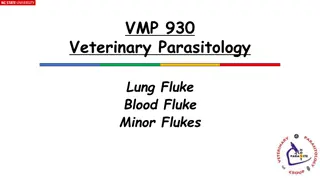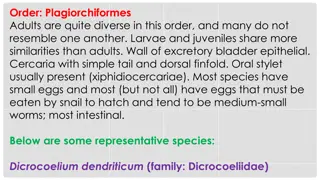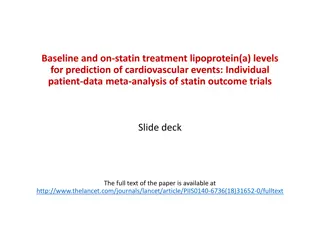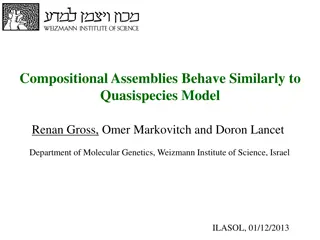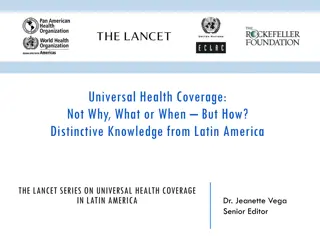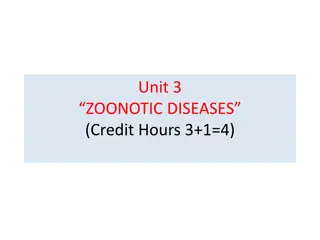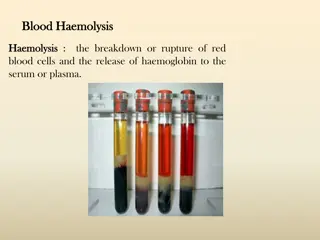Veterinary Parasitology: Liver Fluke Questions and Matching Scenarios
Explore a series of questions and matching scenarios related to liver fluke infections in ruminants, focusing on Fasciola hepatica and related helminth diseases. Discover clinical signs, associations, and key details encompassing different parasitic worms and their impact on animal health.
0 views • 11 slides
Mastering the Art of Writing Helpful Peer Review Reports
Learn the essential elements of writing a constructive peer review report from Zo Mullan, Editor-in-Chief of The Lancet Global Health. Understand the general considerations, checklists, and guidelines to follow. Discover tips on maintaining professionalism, objectivity, and specificity while providi
0 views • 13 slides
Transforming Healthcare Through Interprofessional Education
Glaring gaps and inequities in health persist globally, calling for a transformation in professional health education. Interprofessional Education (IPE) fosters collaborative practice among students from various health and social care professions to enhance patient-centered care. The Lancet emphasiz
5 views • 28 slides
ACST-2 Trial: Stenting vs. Surgery for Carotid Artery Stenosis
ACST-2 is a randomized trial comparing carotid artery stenting (CAS) versus carotid artery surgery (CEA) in asymptomatic patients with severe carotid stenosis. The trial, published in The Lancet in August 2021, involved 3625 patients. While surgery has been shown to reduce stroke rates, modern medic
0 views • 19 slides
Can Multigene Tests Guide Adjuvant Treatment in Early Breast Cancer?
Breast cancer is heterogeneous, and predicting outcomes using clinical and pathologic features can be challenging. Genomic tests such as Oncotype DX, PAM50, and MammaPrint have been developed to aid in treatment decisions since 2002. Studies like the NSABP B-14 and B-20 trials have shown the benefit
0 views • 45 slides
Understanding Lung and Blood Flukes in Veterinary Parasitology
Learn about Paragonimus kellicotti, a lung fluke affecting pets and humans, its life cycle, pathology, diagnosis, and treatment. Explore Heterobilharzia americana, a blood fluke found in dogs along the Gulf Coast States, with unique characteristics and zoonotic implications. Discover the clinical im
0 views • 12 slides
Lifecycle and Treatment of Dicrocoelium Dendriticum - A Lancet Fluke
Plagiorchiformes is an order with diverse adult species, notably Dicrocoelium dendriticum causing Dicrocolidiasis. Its complex lifecycle involves snails, ants, and multiple hosts. The parasite can infect various animals and rarely humans. The treatment options for controlling D. dendriticum infestat
0 views • 13 slides
Baseline Lipoprotein(a) Levels in Statin-Treated Patients for Cardiovascular Event Prediction
Lipoprotein(a) levels play a crucial role in cardiovascular disease risk assessment, especially in patients undergoing statin therapy. This individual patient-data meta-analysis from the Lancet explores the predictive value of lipoprotein(a) levels in 29,069 patients across seven landmark statin tri
0 views • 10 slides
Understanding Compositional Assemblies and Quasispecies Model
Compositional assemblies exhibit behavior similar to the quasispecies model, as explored by Renan Gross, Omer Markovitch, and Doron Lancet at the Weizmann Institute of Science. This model provides insight into population dynamics and the replication processes of genotypes within environments, sheddi
0 views • 35 slides
Achieving Universal Health Coverage: Insights from Latin America
The Lancet Series on Universal Health Coverage in Latin America explores the importance of the Latin American nations' experience in the global context, addressing profound inequalities, policy experimentation, and the quest for Universal Health Coverage. The series delves into political and technic
0 views • 15 slides
Understanding Paragonimiasis: A Zoonotic Disease
Paragonimiasis is a zoonotic disease caused by the Paragonimus lung fluke, primarily transmitted to humans through consumption of raw or undercooked crabs or crayfish. The disease can lead to various symptoms ranging from mild cough and abdominal pain to more severe cases affecting the central nervo
0 views • 9 slides
Understanding Blood Haemolysis and Specimen Rejection in Laboratory Testing
Blood haemolysis refers to the release of haemoglobin from red blood cells, affecting test results. Specimen rejection occurs due to various factors like unsuitable conditions, safety hazards, and improper labeling. Capillary puncture technique is used for patients with difficult venous access. Guid
0 views • 8 slides
